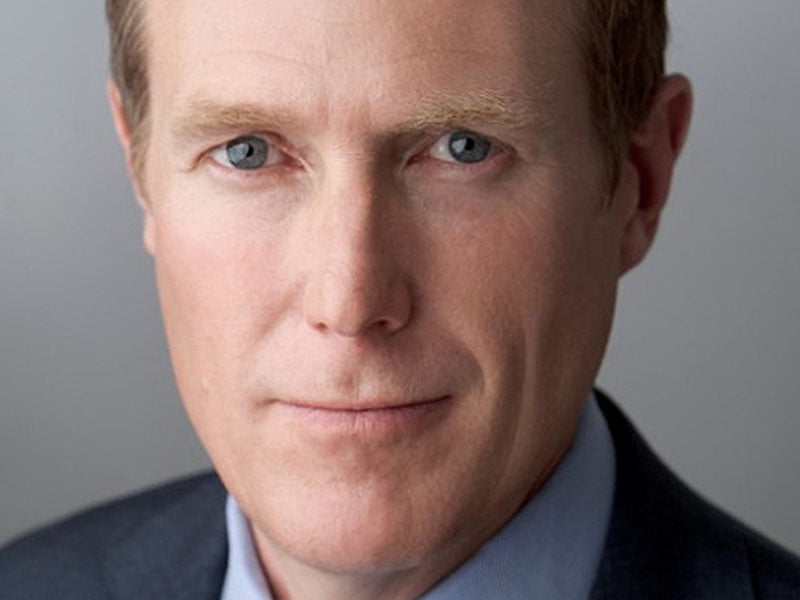CSIRO was not consulted about a controversial program to drug test welfare recipients before a Cabinet minister announced that its Data61 analytics unit would be a key player in the scheme, InnovationAus.com has been told.
Social Services minister Christian Porter first claimed that Data61 would assist the government on the drug-test initiative three weeks ago, in an interview on ABC Mornings two days after the federal budget.
Mr Porter said Data61 would play a key role in the program, analysing data sets to determine three trial locations to conduct “random” drug testing of new welfare recipients.

“We’ll use a combination of data that we will help develop with Data61 and the CSIRO,” Mr Porter said during the interview.
But InnovationAus.com understands this was the first Data61 heard about their involvement with the drug test scheme, and that the government had not consulted with the wider CSIRO before making the announcement.
It is an extraordinary revelation that puts a spotlight on the CSIRO’s starring role as the pig-skin in a game of political footy.
For its part, the CSIRO has declined to say when Data61 found out about its involvement in the scheme. The unit won’t even confirm that it is an active participant, despite the minister clearly believing it is.
“We are unable to confirm Data61’s involvement at the moment as the work has not commenced. This is in line with our policy around discussing the details of contractual agreements with any partner – public or private enterprise,” a CSIRO spokesperson said.
The Department of Social Services also declined to deny the claims, or confirm when Data61 was informed, or even if it is involved in the project.
“The Department has nothing further to add at this time,” the spokesperson said.
A Human Services department spokesperson also declined to comment on the issue.
InnovationAus.com has been told that staff at Data61 are questioning their involvement in the controversial drug-test scheme, with some experiencing an “existential crisis” over the issue.
The legislation required to implement the drug testing needs the support from either the opposition or the crossbench. Labor has delayed deciding whether it will back the program, and has submitted a series of questions to the government.
As announced in the budget, the government plans to drug test 5000 new recipients of Newstart Allowance and Youth Allowance across two years in three locations.
It will use “data-driven profiling” to determine these three sites, drawing on data sets including from the Australia Institute of Health and Welfare, internal data from the DHS and DSS and waste water analysis.
Data61 will be called upon to draw together this data and formulate an algorithm to determine the three sites to undertake the trial drug testing.
The organisation’s involvement in the highly contentious program has the potential to damage the ‘public good’ reputation of the CSIRO and Data61, with the highly-trained and taxpayer-funded research smarts being utilised to crack down on the vulnerable members of society.
Data61 bills itself as “Australia’s digital and data innovation group” with an aim to develop and apply cutting-edge technology. The organisation, which was born from a merger between NICTA and the CSIRO’s digital research unit, received a $75 million funding boost as part of the government’s Innovation Statement in December 2015.
The proposed drug testing of welfare recipients has faced intense scrutiny since it was announced earlier this month.
Victorian Privacy Commissioner David Watts has raised a series of concerns with the scheme, saying that it lacks transparency and fairness.
“I have a concern that we’re moving blindly into all of these new territories without anyone really knowing what they’re doing, with lots of vendors of algorithms and data solutions selling a lot of gear,” Mr Watts told InnovationAus.com.
“What sort of data protection impact has been done by this department to ensure that the risk of harm coming to people who are targeted in this ‘gesture of love’ by Malcolm Turnbull? How can we tell that it’s being done accurately?”
The use of data-driven profiling and algorithms will inevitably unfairly target vulnerable members of society, Mr Watts said.
“People assume that data is data and that if you’re using it, it’s in reasonably good shape. From my experience as a regulator, that’s not the case. A lot of data sets are inaccurate, incomplete and highly questionable. Some data sets are good, some data sets are poor and some data sets are badly maintained. And no-one knows what’s being used,” he said.
“I wonder if these welfare recipients who are being drug tested can find the data that’s being used about them to create adverse outcomes for them.”
Shadow Minister for Human Services Linda Burney has previously raised concerns about the scheme, saying it risks going down the same path as the trouble-plagued robo-debt program.
“When these algorithms fail or there is inadequate human oversight, as we saw with robo-debt, the consequences are disastrous. It is hard to believe the same mistakes won’t be repeated here without some institutional change,” Ms Burney said.
“There hasn’t been any indication from the Minister that process will be improved – that is deeply concerning.”
Privacy issues have also been raised about the program, with UTS Business School associate professor Bronwen Dalton saying it will lead to discrimination and profiling.
“This will inevitably descend into profiling, and probably racial profiling. Data profiling reproduces and magnifies our own human biases, with all that computational power. People think data profiling is blind and rational, but what it actually does it amplify our own biases in the way we work with data,” Ms Dalton told InnovationAus.com.
“It’s a violation of privacy that falls disproportionately on young people, and very poor young people. They’re just singling out young people who are getting hardly any money anyway.”
Do you know more? Contact James Riley via Email.

